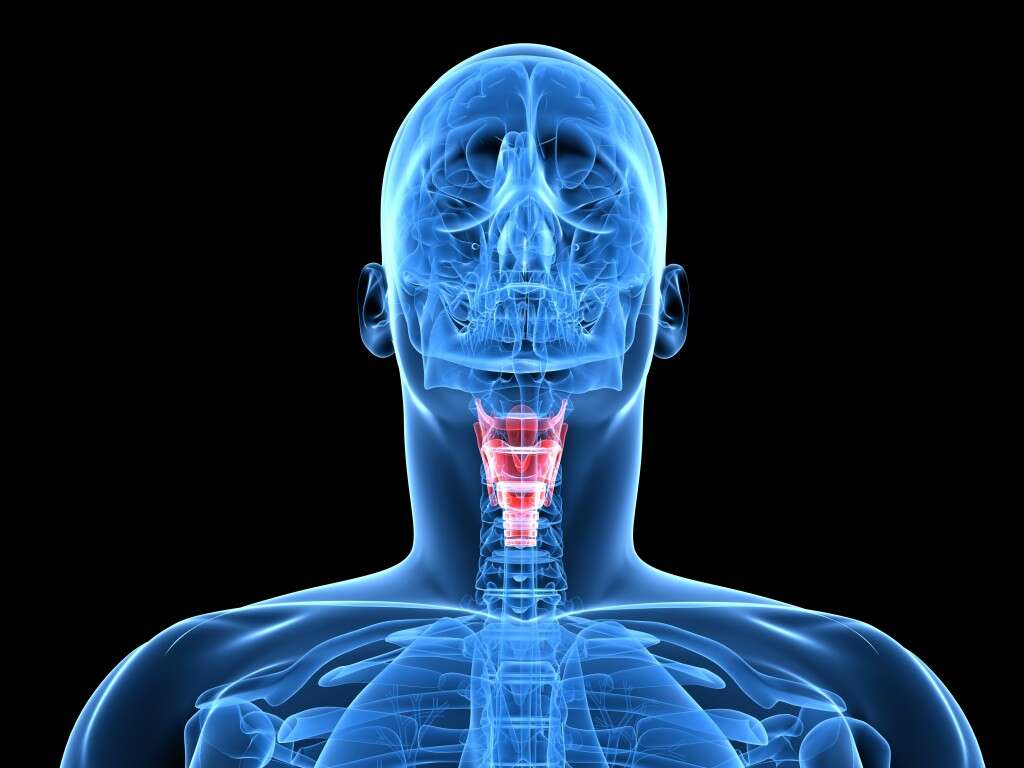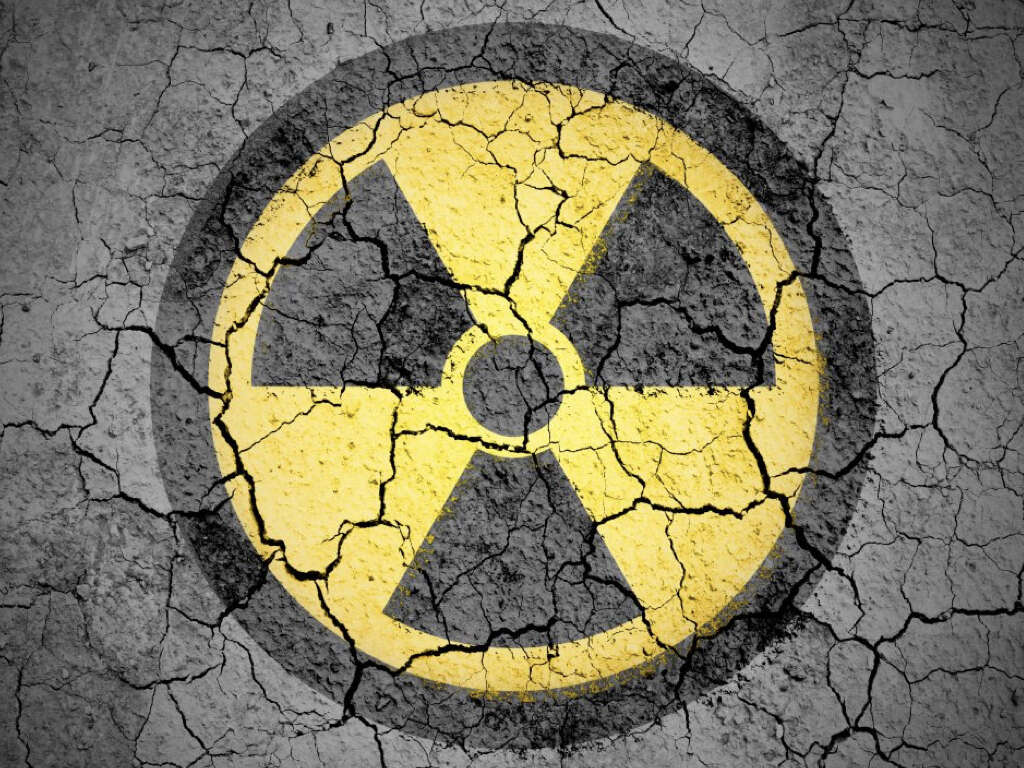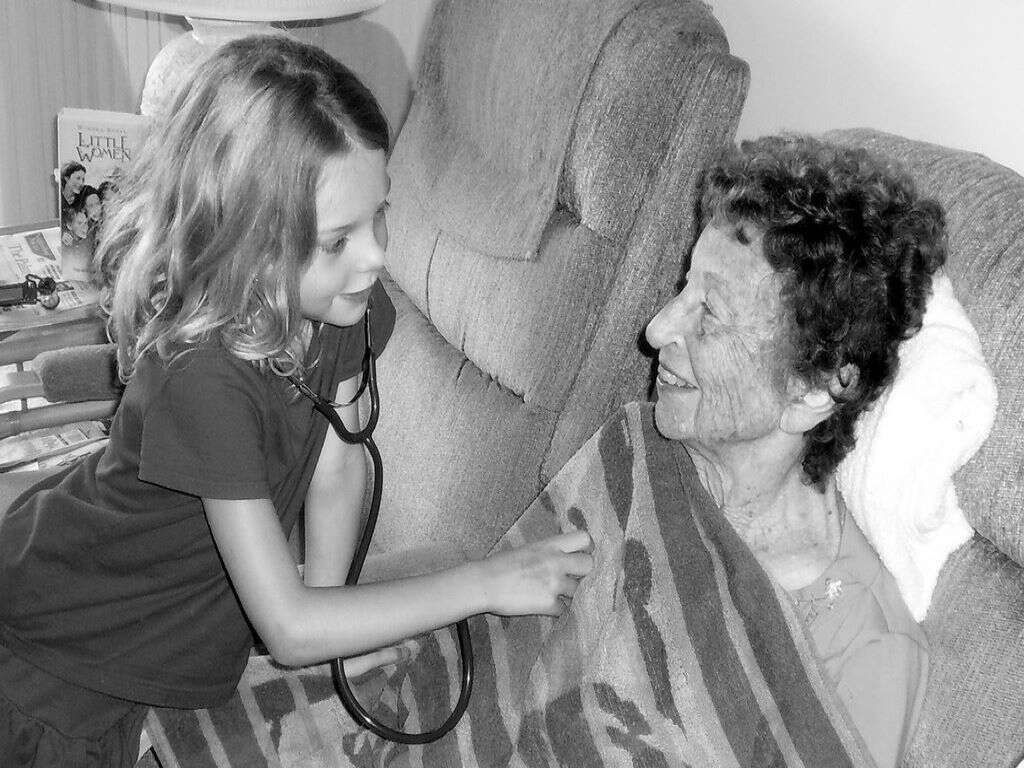10 Symptoms of Thyroid Cancer
Approximately 1% of all newly diagnosed cancer in the United States annually are thyroid cancers. There are several types of thyroid cancers with the commonest being papillary carcinomas at 80%, follicular carcinomas at 10%, medullary thyroid carcinomas at 5-10%, and anaplastic carcinomas at 1-2%. Once a thyroid nodule has been identified, a fine needle aspiration biopsy is performed to examine the cells of the nodule to differentiate a benign from malignant disease. Medical imaging may also be necessary to determine the extent of spread and invasion of the disease if it is malignant. While patients with malignant thyroid cancer have a relatively favorable prognosis, an estimated 1200 patients in the United States died of thyroid cancer in 1998.
The treatment of thyroid cancer usually requires a multidisciplinary team involving a surgeon, endocrinologist, radiologist, and oncologists. One study found that between the years 2000 to 2007 among 86,690 patients who were diagnosed with thyroid cancer, the 5-year survival rates for men were 81% and 88% in women. The incidence of thyroid cancer is three times higher in women compared to men.
Symptom #1: Nodule
Most thyroid cancers present as a painless and solitary nodule that can be palpable in front of the neck, below the Adam’s apple. These nodules are usually discovered during palpation of the neck either during showering, or routine examination by physicians.
In 4-7% of the general population, palpable thyroid nodules are present, and most are usually benign. Imaging using high resolution ultrasonography found that thyroid nodules can be present in 19 to 67% of randomly selected individuals. Solitary nodules are more likely to be malignant in individuals above the age of 60 or under the age of 30.
Symptom #2: Hoarseness of the Voice
When a patient presenting with a thyroid nodule also has hoarseness of the voice, it is more likely that the nodule is malignant. Hoarseness of the voice usually indicates that there is involvement of the recurrent laryngeal nerve (a branch of the vagus nerve that innervates the muscles of the larynx) and vocal cord paralysis.
Since the thyroid gland is located below the larynx or better known as the voice box, the thyroid nodule can sometimes press on the voice box leading to voice changes or hoarseness. If voice changes persist and do not resolve, it is highly likely there is a growth.

Symptom #3: Dysphagia
Dysphagia is the medical term that is used to refer to difficulty swallowing. It includes the difficulty of initiating a swallowing movement or reflex and the sensation of having food that is stuck in the chest or neck. Since it is a common symptom that is present in older patients, it can sometimes be overlooked.
About 7-10% of individuals over the age of 50 experience dysphagia. In thyroid cancer, patients may develop dysphagia due to direct compression because of the enlarged thyroid gland or involvement of the nerves. Even after the treatment and management for thyroid cancer, many patients continue to experience this symptom as an unintended consequence of radiation therapy or surgery.
Symptom #4: Lymphadenopathy
Lymphadenopathy refers to the condition where the lymph nodes are abnormal in size, consistency, or number. Lymph nodes are a part of your immune system that function to fight off infection and can be found all over the body. If the thyroid cancer has advanced enough that it has spread to the lymph nodes surrounding the thyroid gland, the affected lymph nodes will become swollen. Many lymph nodes in the neck can be affected by the spread of thyroid cancer.
Using a high-resolution ultrasound and computed tomography (CT) scan with contrast, it allows doctors to examine these lymph nodes to evaluate if they are involved. The lymph nodes in the neck can be divided into three areas: the central neck, the anterolateral neck, and the posterolateral neck. Affected lymph nodes should be removed during surgery.

Symptom #5: Dyspnea
Dyspnea or difficulty breathing can occur in patients with thyroid cancer. If the growth is large enough to cause airway obstruction, it can lead to shortness of breath. Another possible cause of dyspnea in patients with thyroid cancer is metastases (spread of cancer) to the lungs.
Lung infiltrations and pleural effusions (buildup of fluid in the area between the tissue layers lining the lungs and chest cavity) can occur. Lung metastasis is often associated with respiratory symptoms and have been reported to be one of the most fatal complication.
Symptom #6: Cough
A non-specific symptom of thyroid cancer is a persistent cough or a cough that will not go away. This cough is usually caused by the irritation of the upper airway and/or the surrounding nerves, due to compression.
Patients with a persistent cough that has been diagnosed with thyroid cancer may need a CT scan to see the extent of the involvement of the nerves. It is also done to confirm or rule out if the cough is caused by the nodule. If there is a high likelihood that the cough is caused by the nodule, surgery is likely needed. Possible complications of the surgery may involve damage to the recurrent laryngeal nerve leading to hoarseness or loss of voice.

Symptom #7: The Need to Swallow
In some patients with thyroid cancer, the nodule causes the patient to feel the “need to swallow” as it feels as if there is constantly something in the throat. Most patients with this symptom often are not able to feel a nodule on the front of their neck as the nodule is growing on the back side of the throat. So, if you notice that you constantly feel the urge to swallow of clear your throat, it may be an indication that there is a thyroid nodule growing on the back of they thyroid gland.
To confirm the diagnosis, a thyroid ultrasound will be required to determine the size and location of the nodule. A fine needle aspiration biopsy will then be necessary to evaluate the nature (benign or malignant) of the nodule. Medical imaging may also be necessary to evaluate the extent of the disease.
Symptom #8: Symptoms of Hyperthyroidism
In some cases of thyroid cancer, there can be symptoms of hyperthyroidism suggesting that the nodules are autonomously functioning nodules. Autonomously functioning thyroid nodules are nodules that are characterized by their iodine uptake, function, growth, and is independent from the control of thyroid stimulating hormone (a hormone released by the pituitary gland that regulates the release of thyroid hormones). One study found that the incidence of hyperthyroidism in patients with thyroid cancer is quite high at about 12%.
They also tend to have more aggressive disease with poorer prognosis compared to other patients. The symptoms of hyperthyroidism include loss of weight, increased appetite, diarrhea, heat intolerance, tachycardia (rapid heart rate even at rest), dyspnea (difficulty breathing), proximal muscle weakness (especially hips and pelvis muscles), tremors, anxiety (panic attacks, nervousness, and irritability), eye symptoms (such as exophthalmos), and more.

Symptom #9: Loss of Appetite
Patients with thyroid cancer are like patients with other types of cancers. Those that do not have hyperthyroidism symptoms often experience loss of appetite. It is defined as a reduced or lack of desire for food that was once enjoyable. It can be due to the metabolic change caused by the cancer.
Other contributing factors of appetite loss include pain, weakness, fatigue, and depression. In thyroid cancer patients, the sensation of a constant lump in the throat and difficulty swallowing can also contribute to the loss of appetite. As the cancer grows in size, the obstruction of the esophagus can occur causing the patient to resort to liquid and soft foods that can also be less appetizing.
Symptom #10: Loss of Weight
In patients with cancer, weight loss is a common symptom despite the type of cancer. It is one of the more noticeable signs of cancer. As many as 40% of patients reported that they experienced unexplained weight loss when they were first diagnosed with cancer.
This number increases to 80% in individuals with advanced cancer. Patients with advanced stages of cancer also experience cachexia. Cachexia is a term that is used to describe a constellation of symptoms such as wasting, muscle atrophy, weight loss, fatigue, weakness, and loss of appetite. Depletion of adipose tissue (fat) reserves are seen.










